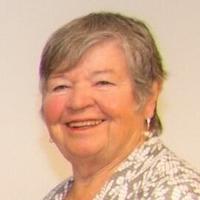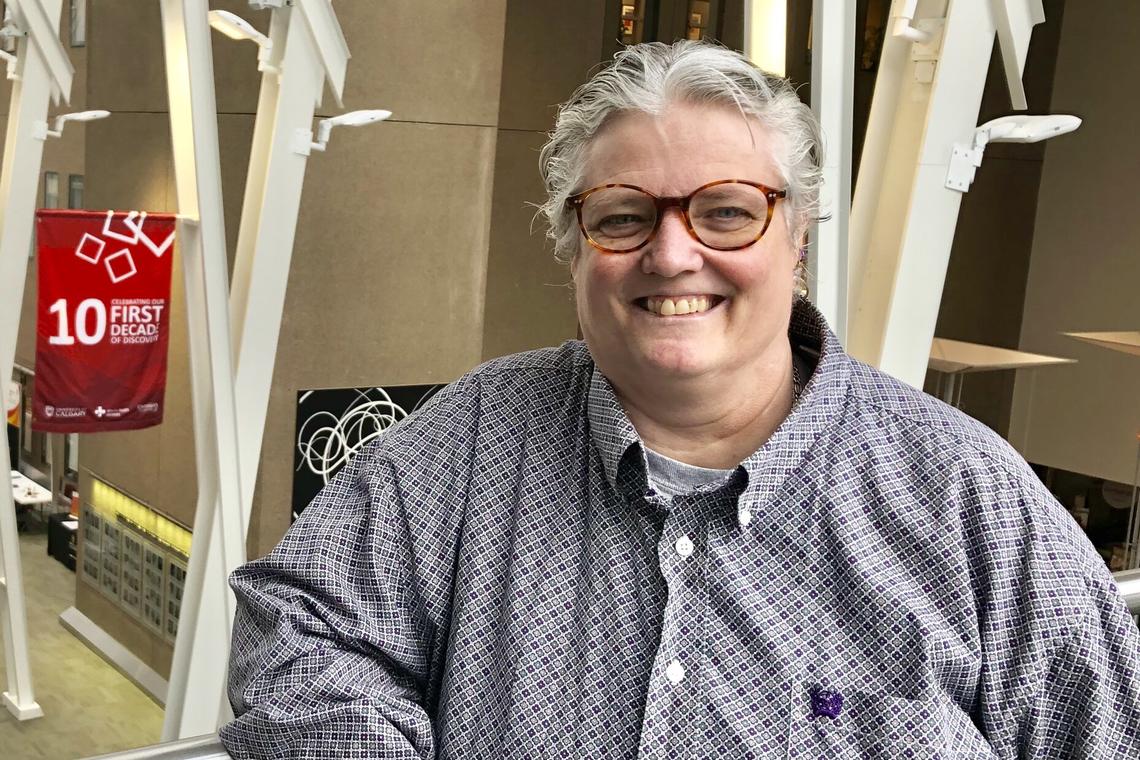The impact that I'm hoping to have is to make the lives of patients better, to impact my family, learn more about the health care system and just contribute to science and health care.
Marcia Bruce
PaCER Graduate
Sylvia Teare
Sylvia Teare is a trained Patient and Community Engagement Researcher (PaCER), she an original member of the Seniors’ Health Strategic Clinical Network (SCN) core committee, as well as of several committees of the Bone and Joint Health SCN. Co-lead in the knowledge translation KOASK project: Building Partnerships to Improve Care of Early Knee Osteoarthritis Patients.
Transformation in health care will only happen with the engagement and involvement of patients in the planning and decision making

Sylvia Teare
PaCER Graduate
Peer-to-peer Analysis of the Experience of Waiting for Help with Osteoarthritis
Dr. Jean Miller, PaCER Graduate
As people with arthritis, Jean along with her PaCER colleague Sylvia Teare, collaborate with Alberta arthritis researchers to improve Albertans’ access to community support for self-managing their arthritis. Since completing their internship where they conducted a peer-to-peer analysis of The Experience of Waiting for Help with Osteoarthritis, they have worked on three PaCER studies that have brought a collective patient voice of osteoarthritis, rheumatoid arthritis, and First Nations rheumatoid arthritis patients to an Alberta research initiative that is creating an optimal model of care for the efficient delivery of appropriate and effective arthritis care.
They co-led the PaCER component of a knowledge translation project (Building Partnerships to Improve Care of Early Knee Osteoarthritis Patients) where patients, family doctors, and researchers are co-designing a tool to help patients better manage their OA. Jean and Sylvia have completed a qualitative study of individuals’ experience in the ‘Employment Arthritis: Making it Work Program’, which is being followed by a second study of the impact of this program on employment and everyday life for people with rheumatoid arthritis. They have also done PaCER studies in cardiac care (APPROACH: Patient Engagement to Identify Priorities for Shared Decision-Making Tools) and seniors health (Meaningful Research for Meaningful Engagement).
Jean is a patient member of the CIHR Working Group developing ethics guidelines for engaging patients as collaborators in research. Jean has also been a member of the Bone and Joint Health Strategic Clinical Network Committee and the Innovation and Research Steering Committee (Alberta Health Services), the Canadian Institute for Health Research (CIHR) Standing Committee on Ethics.
Going through the PaCER program has given me the opportunity to develop as a researcher on my own; to start to understand what it is to work with patients in a really collaborative manner.
Ashley
PaCER Graduate
Marlyn Gill
Marlyn Gill, a graduate of the original PaCER group in 2012, Marlyn is working on research with patients for the Palliative - End of Life Care, Critical Care, Surgery, Bone and Joint Health, and Cancer Strategic Clinical Networks (SCN).
She has been active in research studies for the Libin Institute, Choosing Wisely Canada and W21C Research and Innovation Centre.
I found that people want to hear your research and really want to hear your opinion.
Karina
PaCER Graduate
Patients have a collective voice that we can empower to transform health care
Shelly Kupsch Interviewed by Patrizia Ranieri, Patient and Community Engagement Research (PaCER) and published in PERG “The Voice”.
PLEASE SHARE YOUR LIVED EXPERIENCE AND HOW THAT BROUGHT YOU TO PaCER.
I am a patient. I have survived a Pulmonary Embolism, a Cancer diagnosis, Emergency Surgery, and if that wasn’t enough, I endured a mid- foot amputation. You might say that I have been to “Hell & Back”. You’re right.
As a Patient Advisor with the Calgary Community Paramedics Program, I attended the Alberta Health Services (AHS) Quality Summit in 2015. It was there that I was introduced to the PACER program. This fueled my passion to learn more about how to bring the patient’s voice to the health care experience. It took a couple of years, the tenacity of a pit bull and PaCER Director Dr. Nancy Marlett’s words to me, “My goodness you are persistent!” Simply put, it was my determination and a desire to learn more about patient-to-patient research that brought me to PaCER.
WHAT DID YOU LEARN FROM YOUR PaCER STUDY?
Our study is, “Understanding the Experience of Patients and their Companions with Managing a Cardiopulmonary Condition”. Working on this study reinforced that we as patients have a collective voice that we can empower to transform health care. There are several key things from the Internship that I consider crucial going forward for me as a patient researcher. Foremost is to always be mindful of the fact that the patient is the expert regarding their experience. Also important is to ensure that my peers, in particular the most vulnerable of the population, are protected, supported, and respected. And finally, that all patients who engage in research have informed consent. Those who choose to be part of it need to be confident that the research is ethically responsible, and they need to have a clear understanding of what the research entails.
WHAT’S NEXT FOR YOU AFTER GRADUATION?
First for me is a very long motorcycle ride, followed by an even longer fly-fishing trip! After that, my priority is to continue to volunteer with the AHS Critical Care SCN and to be involved in other projects. My goal will be to bring forward the skills I have developed as a PaCER to ensure that the patient voice is always front and centre and to remove the power dynamic whenever possible while conducting patient-to-patient research.

Shelly Kupsch is one of the first students to have received a PaCER professional development certificate through the University of Calgary’s Continuing Education. Here she shares her journey to becoming a PaCER patient researcher.
When you truly listen to a patient's experience and their journey, you really do start to get a different direction on what's important, not necessarily what people think is important, but what is important from a patient perspective.
Sandra
PaCER Graduate
At the end of the project... you realize you are not just a patient anymore, that you are actually leading a process that gives people a voice.
Susanna
PaCER Graduate

